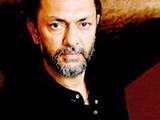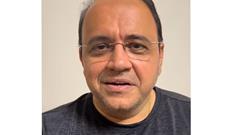We're still fighting social inequality, injustice: Rakeysh Mehra
On the 64th Republic Day, filmmaker Rakeysh Omprakash Mehra feels India is still fighting social inequality and injustice. He says if politicians and government officers are paid well, corruption can decrease drastically.
Published: Saturday,Jan 26, 2013 16:24 PM GMT-07:00

On the 64th Republic Day, filmmaker Rakeysh Omprakash Mehra feels India is still fighting social inequality and injustice. He says if politicians and government officers are paid well, corruption can decrease drastically.
"Why are the managers of our country not looked after as well as the managers of private companies? If politicians and government officers are well paid, their chances of becoming corrupt is drastically diminished," said Mehra, whose 2006 film "Rang De Basanti" showcased silent protest and youth's action against corrupt politicians.
Excerpts from the interview:
Q. As a socially conscious filmmaker, what troubles you about the state of the nation?
A. Where do I start? I've been troubled about various things in our socio-political system. The happenings of the last one month have made us all sit up and take note and vent our anger. At least now the nation has come to a dialogue. I feel after the first Republic Day of Independent India, this is the most crucial Republic Day in the history of our nation.
There's talk of boycotting celebrations in protest against the heinous gang-rape in Delhi. But we achieve nothing by staying away. How can we say we won't be part of the Republic Day when all of us are a part of Independent India? Of course, we are angry, disgusted and anguished. Thanks to the overall conscientiousness of the common people and the media, the anguish has spilt over on the streets.
Q. What would you like us to do?
A. This Republic Day we should take a pledge to go out and vote. We should all promise ourselves that India would have 100 per cent voting in 2014. The vote is just one half of the pledge we should make. The other half is to vote the correct people into power.
Q. Politicians have become more accountable now. Om Prakash Chautala and son have been sent to jail.
A. I immediately tweeted, 'India on the move'. We aren't so gullible anymore that we can't tell who's a thief and who is not. We choose to turn a blind eye. I am so happy that there was an upsurge of outrage after the incident. But the sad thing is, it took such an incident to awaken people's collective conscience. Let's not divert from the issue.
Why blame the policemen for what happened? There are 20 crore people and 93,000 policemen, who are deplorably underpaid. Why are the managers of our country not looked after as well as the managers of private companies? Look at Singapore. The highest-paid official in Singapore is the Premiere. He gets even more than the richest businessman there. If politicians and government officers are well paid, their chances of becoming corrupt is drastically diminished.
Gone are the days when a member of parliament was paid Rs.10,000, given one apartment and an Ambassador car. Their counterparts in all other walks of life are driving around in BMWs. So, give our MPs BMWs to move around in.
Q. BMWs for politicians?
A. Earlier, we were fighting the British Raj. Today we're fighting social inequality and social injustice. We have to look after the army well so that they can defend our country. And if we don't look after the police force, how can we expect them to look after the internal law and order? In order to bring about reforms, we first need to change the person who stares back at us in the mirror every morning. The moment we do that, there will be a paradigm shift. The moment the individual learns to respect himself, the rest follows.
Q. Your film "Rang De Basanti" showed the power of silent protest. Now people are cynical about candle-light vigils?
A. Nothing is ineffective. I asked an old teacher of mine. She said, 'Nothing goes to waste'. How do we define a character in our movie? By their deeds. We all are what we do. If we go out in a silent procession with a candle in our hands we are still protesting effectively.
Q. You were severely condemned by certain sections of critics for showing your heroes killing politicians at the end of "Rang De Basanti"?
A. It was an inevitable step-by-step movement in the plot. First, the heroes were complacent. They just wanted to have fun, or they didn't want to do anything about the corruption around them, or they were a persecuted minority in their own home. And then that change happened. But they really didn't know what to do with that awakening until a personal loss. That's when they went out and raised their voices. Then comes the civil revolution. But we didn't want to show a civil revolution. But the core idea was to rise above ourselves. We need to do that. Even in the film industry.
Q. Where are the conscientious filmmakers? The last film with a conscience was your "Rang De Basanti".
A. I love my work and I hope I'm part of the change. Cinema does need to have a moral responsibility. I haven't seen too many recent films. Somewhere I am scared they might seep into my system. It is time for a change in cinema and society. Like I said, we have a chance this Republic Day to bring an actual reform.
ALSO READ: Rohan Mehra turns director, with Dhruv Tara's Riya Sharma set to be part of the project.
Your reaction
 Nice
Nice Awesome
Awesome Loved
Loved LOL
LOL OMG
OMG Cry
Cry Fail
Fail
















Comments (0)